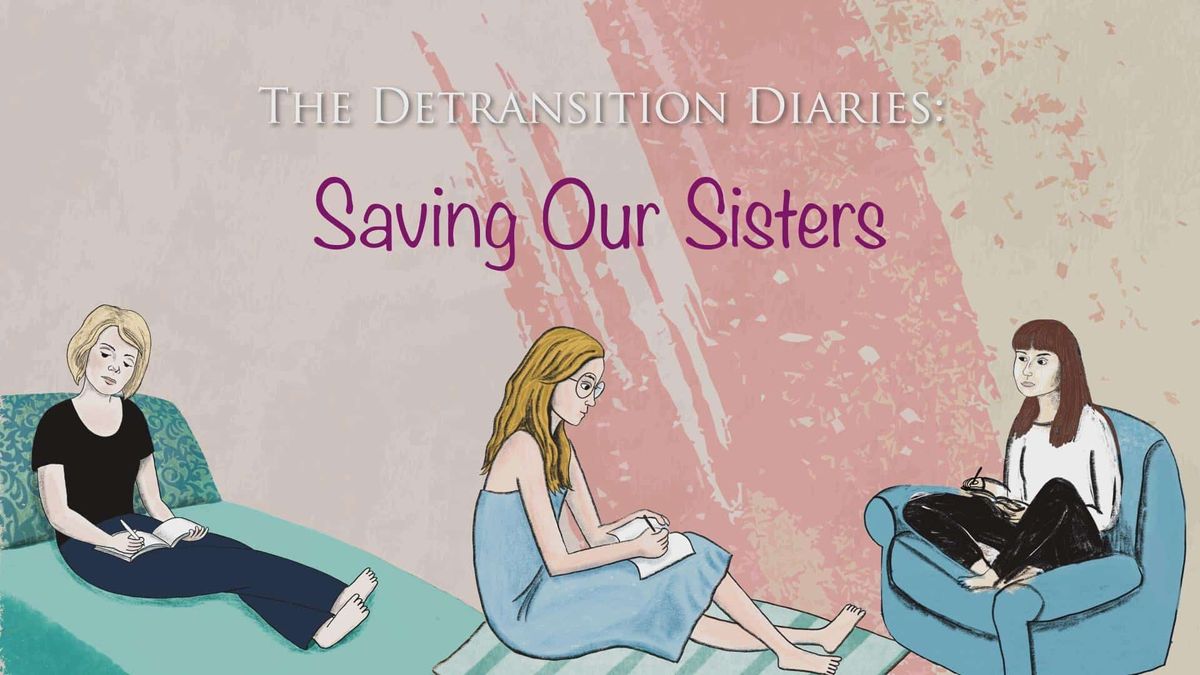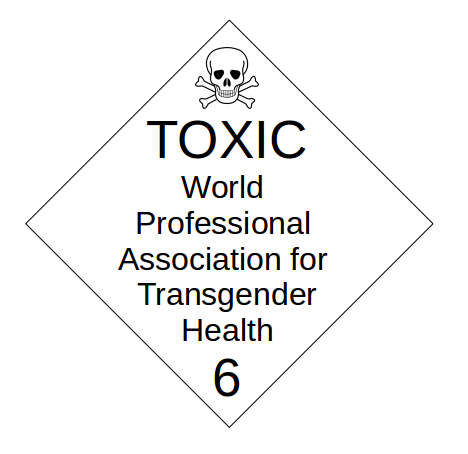The Detransition Diaries Tell the Stories of Young Women Fed to a Brutal Medical Machine
Three young detransitioned women speak out in a new documentary by Jennifer Lahl

The young women in Jennifer Lahl’s latest film Detransition Diaries will never be able to run away from the mistakes they made in their youth; they are fated to carry them on their bodies and sound them in their voices for the rest of their lives. But by sharing their stories and talking about the harm done to them, the three young detransitioned women featured, Helena, Cat and Grace, might save others from believing the lie that they can change sex. And perhaps surprisingly, the tone of Lahl’s documentary is hopeful; the interviewees are presented not simply as victims, but as survivors.
Lahl is an experienced film maker and campaigner, as president of The Center for Bioethics and Culture Network, the topics she tackles are those which the liberal left would rather ignore. She dissects the politics of the body and gives female victims of the transgender and fertility industries a platform from which to talk about their own exploitation.
For any girl, growing into womanhood is a process of learning to abide by a set of cruel rules, of figuring out what it is “acceptable” to feel and do. Helena, Cat and Grace were told that “transition” would allow them to opt out of the unfair limitations placed on their developing female bodies. Their testimonies are familiar tales of adolescent angst, they talk of the confusion of trying to find a place in a world that is hostile to young women.
But while the feelings might be age-old, the solution these women were sold is comparatively new. And as with any fashion, the followers of the transition trend include otherwise responsible adults who ought to know better. Helena, the first interviewee, opens the film by explaining “before I was trans, none of the adults in my life really cared… but when I said I was trans, then they all wanted to bend over backward to help me be trans.”
Helena powerfully articulates how the social justice movement she was a part of left her feeling invisible and “guilty” about being a “cis, white female.” Her fear of being perceived as privileged is palpable; would you want to grow up to be a “Karen”? Yet not one of the adults who should’ve protected her told her that it was okay to simply be herself.
Arguably this is because supporting a trans person on a journey to become their “authentic self” offers more kudos than helping a vulnerable girl through her growing pains. And each of the young women were desperately seeking answers, ignored as girls, they believed that “transition” would solve their distress. Instead, they were used as props in the social justice posturing of others.
Detransition Diaries is not the first film to explore the phenomenon of gender dysphoria with a critical eye. Last year. women’s rights campaigner Vaishnavi Sundar released a four-part documentary Dysphoric, which included segments from clinicians and activists as well as detransitioners. Sundar is an Indian feminist, and Lahl a US campaigner with a focus on bioethics. Yet, despite the obvious ideological and geographical differences, there are striking similarities in the experiences they each capture. The central themes in both films are ideologically blinkered clinicians, the might of the newly emerged transition industry and the acute vulnerability of adolescent girls.
Lahl’s film exposes an astounding dereliction of duty on the part of medical professionals. Those outside the US may be shocked to discover that Planned Parenthood, the main provider of birth control services in North America, also prescribe cross-sex hormones to youngsters who identify as trans. Cat recalls that she called them to obtain a letter of permission to have a double mastectomy, euphemistically referred to by the community as “top surgery.” This was arranged over the telephone without an in-person assessment. Each of the women described how they were blindly affirmed by clinicians and counselors at every stage. It seems once a patient declares themselves “trans,” any safeguarding or scrutiny is waved away.
More broadly, the details offered by detransitioners pose some tough questions for feminists. Perhaps it is comforting to believe that violent male behavior is culturally constructed (i.e. gender), not natural, because then it can be undone by social changes. But listening to the young women interviewed talking about how taking testosterone impacted on their mood and actions invites the uncomfortable question; to what degree is male violence driven by testosterone? Regrettably, non-politicized research into the origins of the differences between sex and gender seems unlikely to be undertaken in the current cultural climate.
What is perhaps most shocking about Detransition Diaries, is the realization of just how young the victims of the transgender industry are. In around 2015, at a time when women in the UK were beginning to mobilize against proposals that would’ve seen gender self-identification introduced in our country, Helena, Cat and Grace were each lost in their delusion that they were the opposite sex. And yet, in the intervening years, each of them subsequently made the decision to detransition. In Cat’s case this was after seeing a video of British women’s rights campaigner Kellie-Jay Keen.
As a middle-aged woman, it is obvious that the very same feelings that led Helena, Cat and Grace to undergo harmful medical procedures are those that in earlier generations were channeled into dodgy piercings, black clothes or at the very worst, regrettable tattoos. The price of youthful distress and experimentation for these women is high; today they are all living with the consequences of their adolescent identity confusion.
It's heart-breaking to realize that Helena, Cat and Grace did the responsible thing when they felt distress in their bodies; they turned to healthcare professionals, to those who promise to “first do no harm.” Yet either through ignorance or cowardice, the therapists, doctors and surgeons in whose hands their bodies rested, fed them into a brutal medical machine. Lahl’s film is brave, necessary and principled. She invites the wider world to listen to the stories of the survivors of the transition industry and to realize that, despite the harm perpetrated against them, those who detransition can learn to thrive.
Do you want to bring the "gender madness" to an end? Help us write about it! 4W is able to support our all-female staff and writers thanks to the generous support of our paid monthly subscribers.
Enter your email below to sign in or become a 4W member and join the conversation.
(Already did this? Try refreshing the page!)




Comments